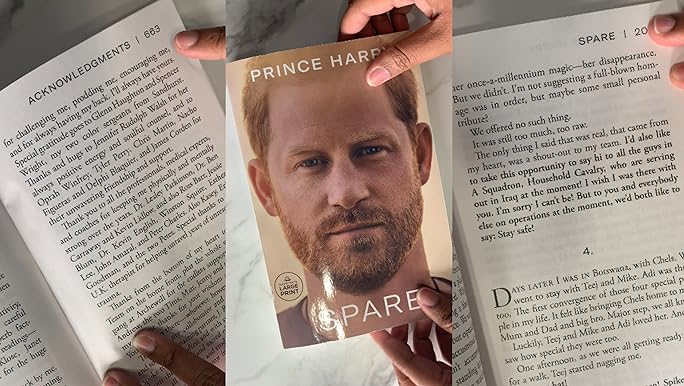Must Read
Prince Harry’s Struggle: A Glimpse into Royal Privilege and Personal Fulfillment
Sean Wallace, famously known as the Dark Destroyer from The Chase, recently shared intriguing insights on Prince Harry's sentiments towards his royal lineage.
Wallace, a seasoned 63-year-old criminal law barrister with over three decades of legal expertise, hinted that Prince Harry might harbor regrets about being part of the royal establishment.
In a candid discussion on the HowToBe60 podcast hosted by Kate Adams, Wallace touched upon the strained dynamics between Harry and his royal kin.
During the podcast, Wallace reflected on his own journey to success in the legal realm, emphasizing his lack of resentment towards those born into privilege.
When probed by Adams about potential feelings of bitterness towards his more advantaged peers during his bar studies, Wallace unequivocally expressed contentment with the path he had chosen.
He articulated his belief that setbacks, failures, and triumphs are integral parts of life, shaping one's character and sense of accomplishment.
Contrary to the assumption that a life of privilege guarantees fulfillment, Wallace suggested that some individuals, including Prince Harry, may grapple with inner turmoil despite their elevated status.
He speculated that Prince Harry, given the choice, might have opted out of his royal lineage to pursue a path of self-made success.
Drawing parallels between personal achievement and inherited privilege, Wallace highlighted the intrinsic value of overcoming challenges and carving out one's identity.
Prince Harry's public disclosures about his struggles within the royal family, as detailed in his memoir Spare, underscore the complexities of his upbringing and subsequent mental health battles.
The release of his autobiography reportedly strained relations with his brother Prince William and father King Charles, shedding light on the deep-seated tensions within the royal household.
Harry's commitment to shielding his children from the traumas he endured reflects a poignant desire to break free from the cycle of generational pain.
While Wallace commended Harry for eschewing a hedonistic lifestyle often associated with royal figures, he also noted a sense of detachment from the grit and perseverance required to achieve true success.
Harry's ability to explore diverse interests without full commitment, shielded by his royal status, raises questions about his grasp on the rewards of hard work and dedication.
Despite his philanthropic endeavors like the Invictus fashion show, Harry's association with these initiatives sometimes eclipses the efforts of those behind the scenes.
However, Wallace's analysis overlooks Harry's current dilemma as he navigates life beyond the confines of royalty.
Despite expressing a desire for independence, Harry's reluctance to relinquish his royal titles hints at a lingering attachment to the privileges and prestige tied to his heritage.
The allure of attention and wealth, intertwined with his royal identity, presents a nuanced picture of Harry's quest for personal fulfillment amidst societal expectations.
In essence, Prince Harry's journey encapsulates a delicate balance between embracing his royal legacy and forging an autonomous path towards self-realization.
Wallace's reflections offer a glimpse into the complexities of privilege, identity, and personal fulfillment, resonating with individuals navigating their own quests for purpose and contentment in a world shaped by societal expectations and personal aspirations.








































